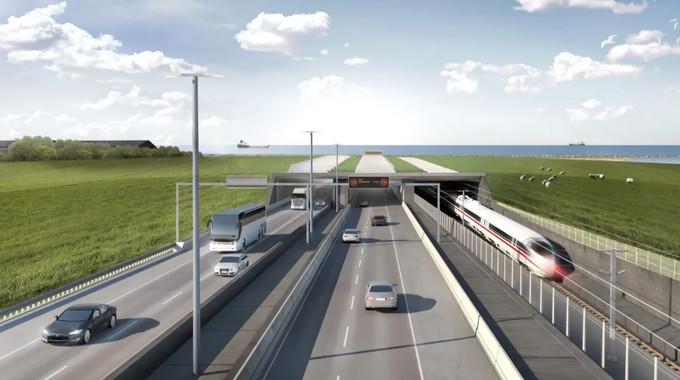An 18 km long tunnel is being built under the Baltic Sea

Under the Baltic Sea between Denmark and Germany, the construction of a unique infrastructure project — the Fehmarnbelt tunnel — is underway. When completed, it will be the world’s longest submerged pre-assembled road-rail tunnel. Its length will be 18 km, informs BBC.
The new route will significantly reduce travel time: the journey between Danish Rodbyhavn and German Puttgarden will take only 10 minutes by car or 7 minutes by train instead of the 45 minutes required for a ferry crossing.
The construction of the tunnel consists of 90 large concrete sections 217 meters long, each of which weighs more than 73 thousand tons. Unlike classic tunnels that are cut through rock, Fehmarnbelt elements are laid directly on the seabed in a pre-prepared channel, connecting them with an accuracy of 15 millimeters. This method makes it possible to build even on soft soil consisting of clay and chalk, where drilling is impossible.
Each segment has five separate channels: two for railway tracks, two for road two-way traffic, and one more for technical, maintenance and evacuation. The main work on the production of segments and their logistics is concentrated on the island of Lollann in Denmark, where a special factory and a port have been built.
The total cost of the project is estimated at 7.4 billion euros. Of them, 1.3 billion is provided by the European Commission, and the rest is financed by Denmark. Costs are expected to be recouped through tolls over 40 years. More than 12,000 cars and about 100 trains will use the tunnel every day.
The Fehmarnbelt is of strategic importance as it will become a key transport corridor between Scandinavia and Central Europe, promoting trade, travel and creating new jobs, especially in less economically developed regions such as the island of Lollann.
The construction was accompanied by protests from environmentalists and ferry companies due to concerns about the impact on the marine environment. However, after many years of litigation, in 2020 the project received official approval. To reduce the ecological burden, the Femern company, which implements the construction, is creating a natural zone with an area of 300 hectares on reclaimed land.
Completion of construction is planned for 2029, and the opening of the tunnel will be a new stage in the development of European transport infrastructure.
Photo: bbc.com





